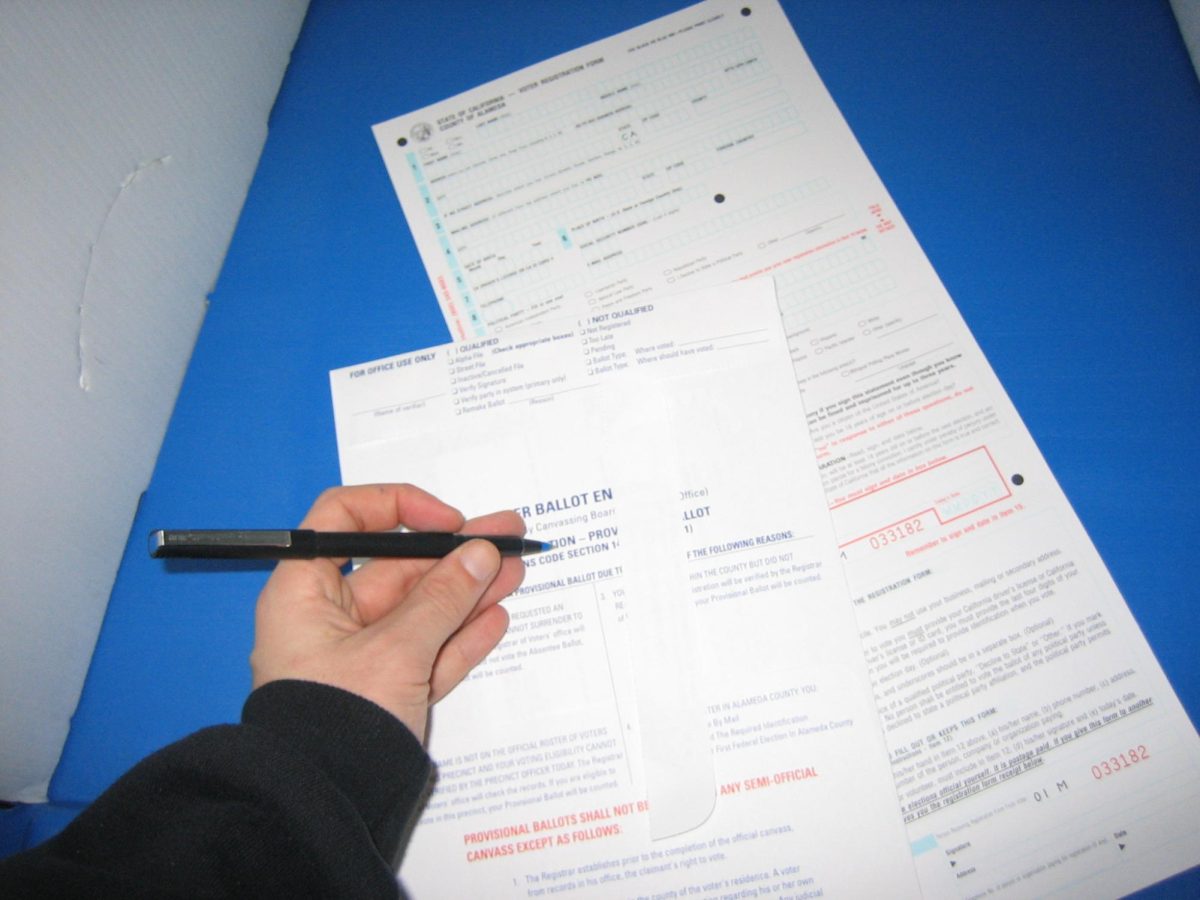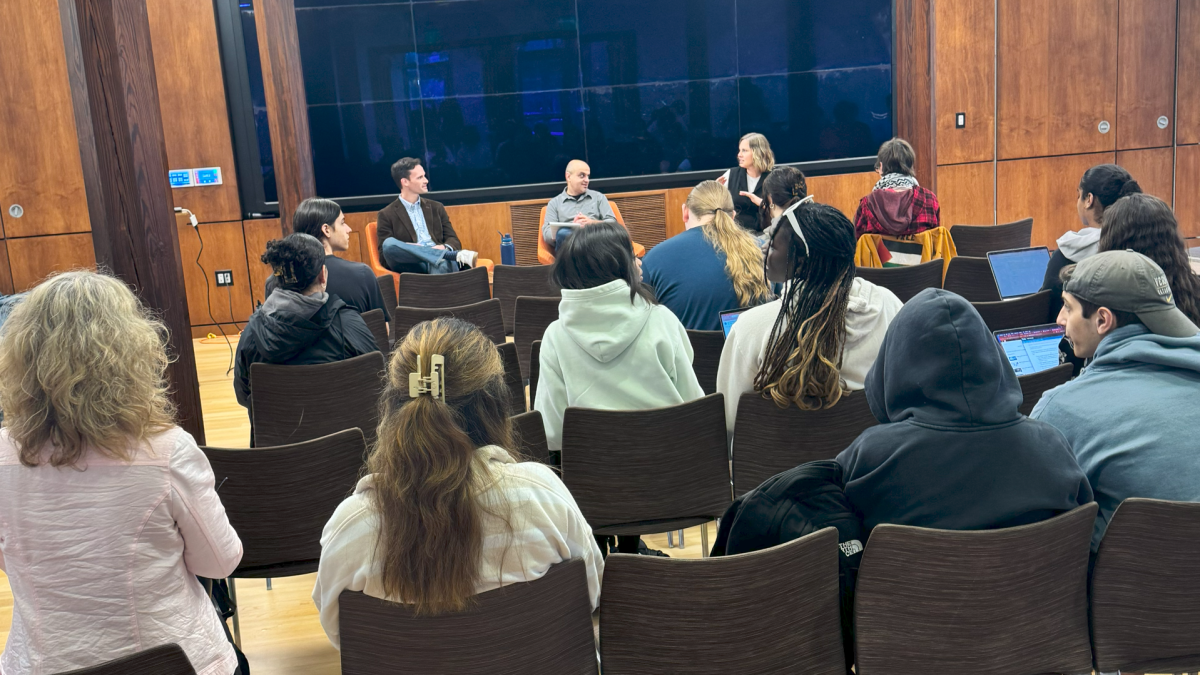On Tuesday, November 5, Massachusetts voters decided on 5 ballot measures proposed through initiative petitions by Massachusetts residents.
An initiative petition allows citizens to propose constitutional amendments and laws for consideration by the general public.
These petitions require ten signatures from registered voters before they can be submitted to the state Attorney General’s Office. The petitions then need 75,000 signatures from registered voters to be appraised by the legislature.
If a petition is not approved by the Legislature, the petition needs 13,000 more signatures for the proposal to appear on voters ballots on election day.
The Secretary of the Massachusetts Commonwealth published information booklets for these 5 ballot questions for Massachusetts residents, available through the secretary’s website. This guide dissects each ballot question, providing a summary, arguments for and against the question, and an individual majority report by the Massachusetts General Court’s Special Joint Committee on Initiative Petitions.
The majority report is a stated recommendation by the Committee based on the testimonies of “experienced professionals, proponents and opponents of the Initiative Petition, as well as members of the general public,” according to the booklet.
The arguments, written and submitted by proponents and opponents of each ballot question, are based on the opinion of the individual. In a disclaimer, the Commonwealth of Massachusetts denies endorsing the arguments, nor do they certify the accuracy of claims made by respondents.
Question 1: State Auditor’s Authority to Audit the Legislature
The first proposed law, if approved, would grant the State Auditor the authority to audit the Legislature. A vote for the measure ensures that the State Auditor has authority to audit the Legislature.
Per the Associated Press, 71.5% of Massachusetts residents voted Yes on Question 1, with a total of 2,277,768 in favor. 28.5% of respondents voted No, totaling 906,376 people. Moving forward, Auditor Diana DiZoglio has been given the authority to determine the type of audits she performs on the legislature.
Neil Morrison, a member of the Committee for Transparent Democracy argued for the measure in the information booklet. He cited the Massachusetts Legislature’s repeated ranking as one of the “least effective, least transparent” legislatures in the country. He highlighted the fact that the legislature is the only state entity that refuses to be audited by the State Auditor’s office, instead opting to conduct audits through a private vendor. Granting this authority to the State Auditor would “shine a bright light on how taxpayer dollars are spent” to increase “transparency, accountability and accessibility” in Massachusetts.
“By identifying operational challenges, an audit would be able to provide recommendations for improvement to better serve residents and provide a level of accountability on an opaque body,” a spokesperson from the Yes on 1 campaign told The Wire. “We believe the people of Massachusetts deserve transparency, accessibility, and accountability from elected officials.”
Jerold Duquette, a professor of Political Science at Central Connecticut State University argued that allowing the State Auditor, an executive branch official, to conduct a legislative audit is a violation of the Massachusetts Constitution’s requirements of separation of powers and legislative supremacy. Duquette contended that the law would transition the State Auditor into a political actor and an influential aspect of the legislative process, both of which would compromise their ability to carry out their constitutional duties to “conduct credible, independent, objective, and non-partisan audits.”
Question 2: Elimination of MCAS as a High School Graduation Requirement
Massachusetts voters opted to eliminate the requirement that students pass the Massachusetts Comprehensive Assessment System (MCAS) tests.
Similarly to Question 1, Question 2 was approved by a significant margin, with 59.1% of voters–1,960,985 individuals–voting in favor of the measure. 1,359,836 voters, or 40.9% of respondents, voted against the proposal, according to the Associated Press.
The proposal suggested students receive their high school diplomas by completing coursework that demonstrates mastery in required subjects, approved by the student’s respective district officials.
Shelley Scruggs, a Parent Volunteer of the Massachusetts Teachers Association, argued in the information booklet that, “though assessments are needed to gauge a student’s skills, the MCAS is a “one-size-fits-all exam.” Replacing the MCAS with more comprehensive measurements of achievement will “unburden students from a make-or-break standardized test,” she wrote.
Scruggs argued that eliminating the MCAS exam will allow teachers and administrators to focus on teaching students skills and knowledge that will most help them succeed in life, rather than specific skills that are measured standardly.
The Protect Our Kids’ Future, a campaign opposing the measure, drafted the argument against it claiming that if students are unable to pass “basic requirements in math, English, or science,” they are not ready to graduate. Instead of easing coursework to guarantee graduation, school teachers and parents need to put in the work to ensure their students’ academic success, their argument claimed. They stressed what they see as a delicate education system that could be unprepared for a significant change.
Chad Aldeman, an independent contractor and education analyst, has written hundreds of advocacy reports concerning the state of education countrywide. Regarding Question 2, Aldeman is definitively an opponent: “If the repeal vote passes, the Massachusetts class of 2025 would have no graduation requirements at all except to take physical education and civics classes. The state doesn’t even require students to pass those classes!” he said.
Question 3: Unionization for Transportation Network Drivers
53% of voters also voted to allow Transportation Network Drivers (“Drivers”) to form unions. These labor organizations could negotiate with Transportation Network Companies (TNCs) on matters such as wages, benefits, and terms and conditions of work. TNCs are defined as companies that utilize digital technology to connect drivers with riders for arranged transportation.
Roxana Rivera of United for Justice, a union-backed ballot committee, penned the in-favor argument for the information booklet, claiming that the law will allow drivers the option to unionize while also maintaining “driver flexibility and independence.” Unionizing, which is largely guaranteed for most in the workforce, is now an option for drivers. Transportation Network Drivers deserve that option, Rivera argued.
The case against this question, written by the conservative Massachusetts Fiscal Alliance (MFA), argued that approval of the law gives politicians the ability to influence rules without consequence, creating a “new radical labor category” that does not coincide with precedent labor laws.
Drivers in Massachusetts are given benefits such as a base pay of $32.50/hr, paid sick leave, on-the-job injury insurance, anti-discrimination protections, and several more to ensure a quality work environment, which the MFA argued is sufficient. Implementing unionization does not give drivers the ability to negotiate terms, as they would have “no control over leadership of the union” while still paying significant dues to union representatives, they argued.
When asked for further comment, the Massachusetts Fiscal Alliance, said, “The way this ballot question is currently written potentially violates state and federal labor law and if passed by the voters, would most likely result in a prolonged legal battle before this potential law is changed.”
Question 4: Limited Legalization and Regulation of Certain Natural Psychedelic Substances
Voters shot down a proposal that would have seen the limited legalization of certain psychedelic substances, with 57% of voters coming out against the measure. This proposed law would allow individuals ages 21 or older to “grow, possess, and use” specified psychedelic substances under certain conditions.
The permitted psychedelic substances are psilocybin and psilocin, which are found in mushrooms, and dimethyltryptamine, mescaline and ibogaine, which are found in plants. Approved facilities will be licensed and regulated for the production and distribution of these substances, and subjected to taxation on proceeds from sales. Individuals 21 and older would also be able to grow psychedelic substances in their homes for personal use. The proposal also calls for the creation of a “commission to regulate those substances.”
Proponents of the measure see approval of the proposed law as allowing for safe, regulated access to psychedelic substances for the purpose of medical treatment. According to Sarko Gregerian, a mental health counselor who wrote the argument in favor of the proposal, if passed, psychedelics would be available in “approved therapeutic settings under the supervision of licensed facilitators,” contrary to the misconception that they would be sold in stores for personal utilization.
Psychedelic medicines offer an alternative to those who suffer from treatment-resistant or terminal mental or physical illnesses and should be accessible to those who need it, he argued.
Those who object to the question contend that the proposed law’s toleration of at-home growth of psychedelic substances would inevitably cause a black market. They also cited concerns about road safety, referencing the statistic that 1 in 3 frequent psychedelic users have driven under the influence of psychedelics in the past year.
Facilities and distribution centers would not be required to staff medical professionals, therefore running the risk of facilitators distributing psychedelics to “high-risk patients like those with schizophrenia, bipolar illness, and pregnant or breastfeeding women,” according to Doctor Anahita Dua, an Associate Professor of Surgery at Harvard Medical School.
Question 5: Minimum Wage for Tipped Workers
Massachusetts residents overwhelmingly voted against a proposal that would have gradually increased the minimum hourly wage for tipped workers over the course of the next five years, with 64% of voters opposing the measure.
The proposal aimed to increase wages, beginning on January 1, 2025, with tipped workers making 64% of the current minimum wage, increasing gradually each New Year’s Day until they earned 100% of the wage in 2029. This law would also allow employers to administer “tip pools,” wherein all tips earned by employees would be combined and redistributed to all workers, including non-tipped staff.
One Fair Wage, a non-profit pursuing wage reform across the country was a main proponent of the measure, having been involved with the initiative when it was in its petition stage. Estefania Galvis of One Fair Wage argued that tipped workers in Massachusetts deserve a full minimum wage plus tips, as it would grant them greater financial stability and security.
Considering small businesses that already pay workers full minimum wage plus tips, Galvis argued big restaurant corporations should be forced to do the same. She further claimed tips as a substitution for sustainable wages is unfair to consumers, who have to supply workers’ wages through tippage: “Tips should be a reward for good service, not a subsidy for low wages paid by large corporations,” she said.
Doug Bacon, a Massachusetts restaurant owner, opposed the measure, claiming that current state and federal law guarantees tipped workers the current minimum wage including tips, with many earning “over $40/hr and 90% reporting at least $20/hr,” in his written argument to voters.
According to Bacon, many of these employees believe that the proposed change would cause them to earn less. Increasing minimum wages and enacting tip pools would reduce wages for tipped workers and increase costs to the restaurant and consumers, he said.








